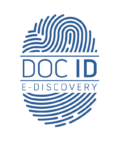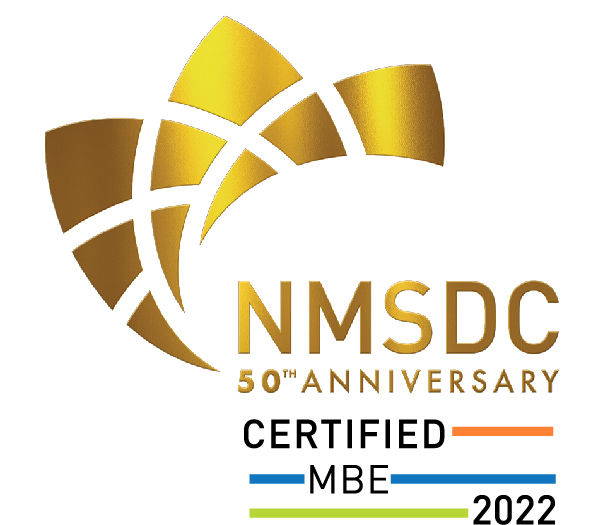Business today is complex. When conflicts, bribery accusations, employment disputes, and white-collar crime allegations emerge, your effective response is a mandatory action. While there are legal and ethical obligations to conduct thorough investigations, the ideal scenario is to mitigate or arbitrate issues before they escalate into full-blown matters. At the same time, eDiscovery technologies and techniques used by compliance, IT, and HR professionals need to ensure the needs of the humans who are being investigated are met, that the process is fair and legal.
Some businesses will choose to conduct internal investigations manually. However, the notion that a secure and unbiased investigation can be efficiently managed by manually scanning through emails and documents, often to save on expenditure, is a misconception. A manual approach can lead to increased costs, delays, and risks in securing and protecting evidence. eDiscovery and AI automations that expedite processes for investigators and stakeholders can save actual costs and time for investigators, while protecting your organization from risks and litigation.
The Mirage of Manual Cost Savings
The illusion of saving costs through engaging existing human resources for manual investigations is tempting, but often leads to unforeseen expense. In the context of everyday corporate life, complexities can quickly escalate investigations and the resources required to conduct an investigation. Consider a multinational corporation grappling with compliance challenges in Europe with complex labor laws, cultural considerations, and union protections. Relying on in-house teams for manual investigations might initially seem cost-effective, but human teams may not be able to identify and investigate evolving issues, commonplace in investigations in Europe, before they escalate. Manual processes can inadvertently increase costs, cause delays, and create risks.
The Pitfalls of Manual Investigations
Manual investigations falter when confronted with the complexity and scale of today’s data. It can be a challenge for organizations of all sizes to locate and collect documents. Multiple new formats such as texts and social media create unexpected forms of evidence. The number of productive hours to perform the basics, and the more sophisticated collection and analysis of documents, can calculate to many hundreds of additional hours. The false economy of manual processes becomes evident when you cost out the hours and rates of your team versus eDiscovery and Technology Assisted Review (TAR) solutions which can accelerate the process.
The Deceptive Depth of Manual Approaches to Investigations
In the absence of automation, the depth of analysis in investigations is compromised. There is an ethical obligation to conduct thorough and defensible investigations without bias or filtering. A multinational corporation expanding its operations globally might encounter cultural nuances and diverse compliance landscapes (e.g., the Sapin2 Act for France) where hierarchy or pressure may interfere with the investigation. Manual methods fall short in uncovering intricate details needed for comprehensive risk assessments, which are sometimes buried in multiple sources across hard copy documents, texts, emails, audio or video documents, or stored documents on work or personal devices. This lack of depth can result in inadequate risk mitigation strategies, exposing the organization to unforeseen challenges by innocent parties or regulators. The cultural layer of an investigation stresses the role of eDiscovery in accelerating investigations, and its ability to fairly and without bias secure documents and evidence, mitigating risks, and ensuring defensibility and a respectful investigation.
Accuracy Compromised
In the pursuit of cost savings, organizations may inadvertently compromise accuracy by relying solely on manual processes. Manual reviews can lead to misinterpretations of complex data patterns, including nuance, timing sequence, and multiple threads of communication. Rather than compromising your investigators, or risk of interference, automation with eDiscovery tools enables thorough and defensible investigations, emphasizing that eDiscovery techniques are not just about cost savings but also about accuracy and reliability.
The Security Conundrum
The false economy extends beyond financial considerations to the realm of security. In industries dealing with sensitive information, such as healthcare or finance, manual investigations introduce vulnerabilities. Mishandling of sensitive information can occur due to inadequate security measures, processes, and supervision inherent within manual processes. Automation not only enhances efficiency but fortifies the security fabric of investigative and surveillance processes. Standard data protection and security regulations are still relevant, even during an internal investigation, covering personal data and special category data under the EU General Data Protection Regulation (GDPR), and similar data protection ordinances across jurisdictions.
Automation as a Catalyst for Transformation
Embracing automation can kickstart a transformative journey. Incorporating eDiscovery technologies amplifies efficiency and augments the capabilities of compliance and ethics, IT, and HR professionals. Automation becomes a strategic enabler, empowering teams to navigate complex regulatory landscapes with agility and precision. A focus on higher value work such as analysis and research, and the proactive use of eDiscovery techniques to identify and investigate issues before they escalate, align with the transformative impact of automation.
Operating Models of Automation
To debunk the idea that investing in automation necessarily incurs higher costs, it’s crucial to emphasize the tangible benefits of automation. Depending on the size and frequency of your investigations, you can select eDiscovery solutions that best fit your needs.
There are client-directed eDiscovery options available on a low cost subscription basis, suitable for simpler investigations, particularly internal fraud inquiries. Investigating teams from HR, compliance and ethics, and IT can launch and review investigations autonomously at any time (24×7). For more complex investigations, especially those involving potential criminal elements, working with an outsourced provider can offer valuable advisory, planning, implementation, and managed services support, featuring expert teams. This approach allows your teams to concentrate on conducting investigations using scalable eDiscovery technology, thus reducing the risks associated with manual work and human error, and better protecting your organization from litigation related to investigation parties.
Advocating for a paradigm shift towards strategic automation can yield greater cost and resource savings compared to traditional manual methods, unlocking the full potential of your investigative processes.
Conclusion
In the pursuit of fiscal prudence, organizations often succumb to the false economy of manual investigations. Compliance and ethics, IT and Security, and HR professionals should reconsider the true cost of manual processes, and seek executive support to make an investment in automation for investigations. By embracing automation, organizations not only safeguard against the pitfalls of a deceptive false economy but propel their investigative capabilities into a realm of improved scale, depth, accuracy, and security.
Jean-Pierre Ullmo is the Managing Director at Epiq Software, and Area Vice President, Continental Europe.








Leave A Comment